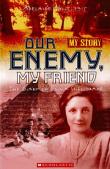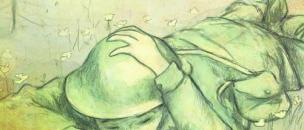 9040508161139658322.jpg
9040508161139658322.jpg
This image has been sourced from Australian War Memorial
y
 Our Enemy, My Friend : The Diary of Emma Shelldrake, the Adelaide Hills, 1915
single work
children's
historical fiction
Our Enemy, My Friend : The Diary of Emma Shelldrake, the Adelaide Hills, 1915
single work
children's
historical fiction
 Our Enemy, My Friend : The Diary of Emma Shelldrake, the Adelaide Hills, 1915
single work
children's
historical fiction
Our Enemy, My Friend : The Diary of Emma Shelldrake, the Adelaide Hills, 1915
single work
children's
historical fiction
Issue Details:
First known date:
2005...
2005
Our Enemy, My Friend : The Diary of Emma Shelldrake, the Adelaide Hills, 1915



